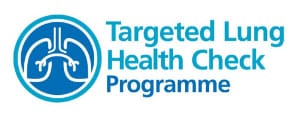Simple steps for healthy lungs
Our lungs work hard every minute of your life so it’s important to keep them working well.
Below are just some of the things that you can do to help keep your lungs healthy. General information about improving your health can also be found on the NHS Better Health website
Keeping active
Small amounts of regular exercise is great for maintaining our overall health as well as that of our lungs. During exercise your muscles work harder, and your body uses more oxygen, this improves your cardio-respiratory fitness making it easier for your lungs to keep your heart and muscles supplied with oxygen. Aim for 20 minutes of moderate activity daily, such as a brisk walk or bike ride
Eating healthily
Maintaining a healthy weight and choosing healthy food options is again important for our overall health. But did you know that certain foods can also support lung health? A plant-based diet or Mediterranean-style diets consisting of leafy greens, fruit, vegetables, whole grains, nuts, seeds and legumes can support lung health as they are high in antioxidants such as vitamin E and vitamin C and anti-inflammatory properties
Quitting smoking and staying smoke-free
Smoking damages the lungs and is a leading cause of lung disease. Stopping smoking is the most important step a person can take to protect their lungs and that of others from passive smoking. If you smoke it is never too late to stop. There’s a range of advice available via the NHS Better Health stop smoking website and you can also speak with your local stop smoking service:
NE Lincs Wellbeing Service
Phone: 01472 325500
Email: [email protected]
North Lincolnshire Healthy Lifestyle Service
Phone: 01724 298212
Email: [email protected]
Phone: 01482 977617
Email: [email protected]
Living Well Smokefree North Yorkshire
Phone: 01609 797272
Email: [email protected]
City of York Council Stop Smoking Service (via City of York Council Health Trainers)
Phone: 01904 553377
Email: [email protected]
Getting coughs checked
A persistent cough can be an early warning sign of lung disease, including COPD and lung cancer. Other symptoms might include feeling more breathless or noticing chest pain. Don’t ignore or dismiss these symptoms; speak to your GP.
Watching your breathing
Simple breathing techniques can help to keep your lung functioning effectively such as:
Diaphragmatic breathing - Concentrate on lowering the diaphragm as you breathe in, for a deeper inhale
Deep breathing – As you slowly inhale, expand your belly and lower the diaphragm. Next, expand your ribs and allow the upper chest to expand and lift. Exhale by letting the chest fall, the ribs contract and your stomach muscles in, lifting up the diaphragm to expel the last bit of air.
Counting your breaths –Start by counting how long a natural breath takes. The length of time to inhale should be the same as the length of time to exhale. Once you know your average breath count, add a count to each inhale and exhale to extend the length of time it takes to fill and empty your lungs.
Watching your posture
The lungs are soft structures and only take up the amount of room we give them. Maintaining a good posture can provide our lungs with the space they need to function effectively. Maintain an upright good posture and lift and open your chest as you breathe deeply to maximise your lung capacity.
Being mindful of wider symptoms and changes
If you or someone you know is worried about any of the symptoms below a GP appointment should be sought as soon as possible:
• A persistent cough or change in your normal cough
• Coughing up blood
• Being short of breath
• Unexplained tiredness or weight loss
• An ache or pain when breathing or coughing
• Appetite loss
